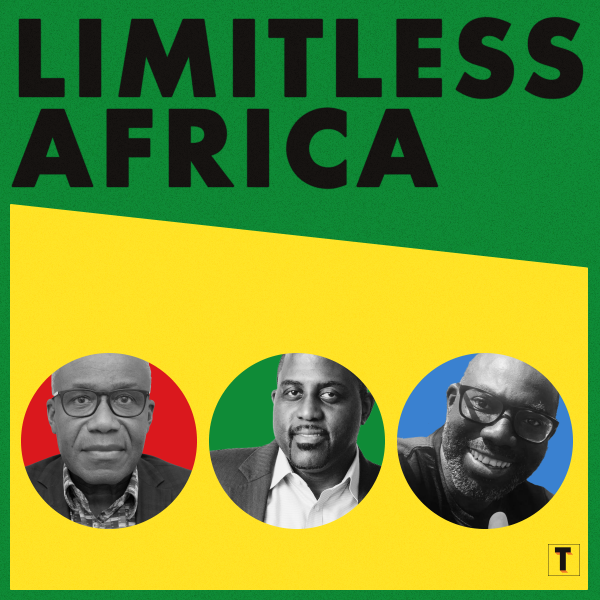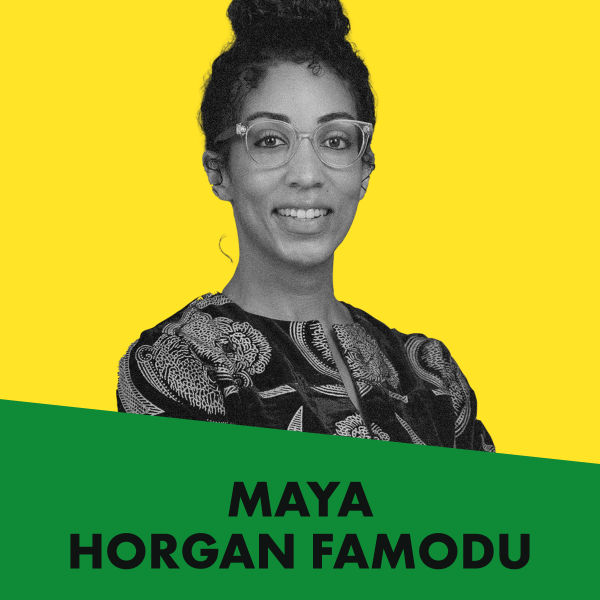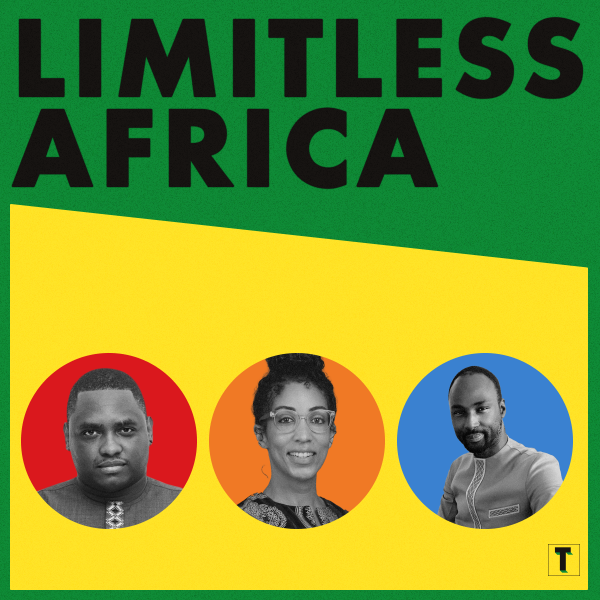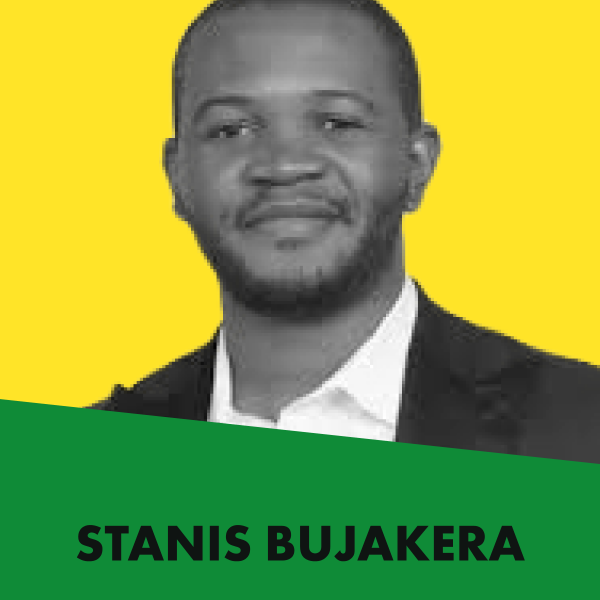Are Russia and China the new colonial powers?
With guests Francis Kpatinde, Jose Gama, Yinka Adegoke

Episode notes
Are Russia and China the new colonial powers in Africa? And what is the nature of their influence?
Transcript
Claude: In this episode we’re talking China and Russia.
“China has made it very easy for Africa.”
“Let’s put an end to the idea that China is only interested in construction, infrastructure projects, mines and natural resources. ”
“With Russia it’s a different thing. Russia certainly doesn’t have the resources that China has.”
Claude: Welcome to Limitless, the podcast that asks the questions that matter for Africa.
In each episode, we ask three guests about one issue that matters to...
Claude: In this episode we’re talking China and Russia.
“China has made it very easy for Africa.”
“Let’s put an end to the idea that China is only interested in construction, infrastructure projects, mines and natural resources. ”
“With Russia it’s a different thing. Russia certainly doesn’t have the resources that China has.”
Claude: Welcome to Limitless, the podcast that asks the questions that matter for Africa.
In each episode, we ask three guests about one issue that matters to Africans. We’re looking for African solutions to African problems. The Limitless Podcast is supported by the U.S. Department of State and the Seenfire Foundation.
In this episode I’m asking some punchy questions: Are Russia and China the new colonial powers in Africa? And what exactly is the nature of their influence on the continent? To find out the answers, I’m going to speak to three journalists – and they have a lot to say.
First up is José Gama. He’s an experienced journalist from Angola, one of the economic powerhouses of the continent. Our lusophone producer Nekane de Ozamiz spoke to him.
Nekane: How would you describe Russia’s influence in Africa?
José: Well, what happens is that we have countries in Africa that during the colonisation period were supported by Russia.
We are talking about Mozambique, Angola and South Africa.
To this day, their relations are based on those of the national liberation movements that led these nations to independence.
And South Africa, above all, is a country that is very grateful to Russia.
That is because Russia was one of the first countries to cut diplomatic relations with the apartheid, closing a consulate here in South Africa, in solidarity with the ANC.
Nekane: In the case of China, what is China’s influence today?
José: China is a partner that does not interfere in the foreign policy of its allies.
And Africa appreciates this side of China.
China has made it very easy for Africa.
José: However it is a relationship that causes debts, it is a relationship where their work, which is not of good quality, only serves for the regimes in showerto show how much they can do in the electoral campaign phase.
So, it is a relationship that has also been causing damage.
Nekane: How Africa should collaborate with Russia for its best interests?
José: Africa must create reciprocal relations, balanced relations with Russia so that it does not become dependent. It must not develop a relationship of interdependence.
Nekane: How should Africa collaborate with China?
José: At the moment, as we have more than 10 countries that are heavily in debt to China. such as Angola in , there is Kenya, Zambia, Senegal, Ghana… These countries must now negotiate for moratoriums, in order to not become too committed or trapped by the debt they have.
Nekane: Where does this leave the United States of America?
José: The United States of America has a policy of neutralizing all Chinese influence in Africa.
So, the United States and China are in a fight to occupy land here on our continent.
The difference is that, even in the eyes of our people, they still prefer relations with the United States, because China does not offer democratic values, the construction of the rule of law and democracy, which many African countries have been struggling with.
Nekane: Which foreign languages should Africans learn for the future?
José: Africans can invest more in English and also in Mandarin if they have relationships.
This week Angola announced that they will even offer a Chinese language course at the Agostinho Neto University.
Claude: Francis Kpatindé is the former editor of Jeune Afrique. He’s now a political commentator at le Monde among other publications. I asked him: are China and Russia our new colonial powers?
Francis: Well frankly, I wouldn’t ask the question in that way. Even more so given today russia and china aren’t the only countries to rush towards africa. Today you have the Indians, the Turkish, the Germans. You have Brazil, you even have Hungary.
So there are quite a few countries making overtures to Africa, including the USA.
So there are quite a few countries making doe eyes at Africa, including the USA. Russia still doesn’t have a military base in Africa. China has had one in Djibouti since 2017. The USA has a few in Africa, in Djibouti like everyone, in the Indian Ocean, and soldiers in Kenya and Somalia
Partnerships between Russia and China go back decades.
You’ll know that China has built lots of football stadiums in Africa since the 1960s. They even built railway tracks in Tanzania and Zambia at that time. Russia and China also helped the nationalist liberation movements in Africa – in South Africa, Angola, Namibia, Zimbabwe, Guinea-Bissau – so those two countries helped African nations liberate themselves from colonial powers and fight Apartheid. Because of this international solidarity in the 60s and 70s, many Africans feel like they owe them for having helped to free their African brothers. That is understandable.
After the end of the cold War the status quo has changed completely. The Soviet Union disappeared after the fall of the Berlin Wall but Russia has remained an important cultural and military power.
There’s a lot of talk about Russia and its military intervention in Ukraine and equally because the Wagner group, the military mercenaries, is intervening in many African countries like the Central African Republic, Libya, Mali and Burkina Faso too.
China has become the second or even the first most powerful country with whom every country trades.
China has invested a lot in Africa in the last few years. Let’s put an end to the idea that China is only interested in construction, infrastructure projects, mines and natural resources. I think that China effectively has a cultural project that some might call a colonial one.
China invests in the long term, in the future. China is offering scholarships and work placements to the best African students, researchers, parliamentarians.
And something that is less well known, China organised an african film festival in 2022 in Nairobi Kenya. 14 chinese films were screened, and 12 of them were translated into swahili, the most spoken language in this part of Africa.
The Chinese objectives in Africa contrary to Russia’s can be summarised in political and diplomatic terms.
It’s about pushing Taiwan out of Africa – it has worked. Today there is only one African country out of the 55 represented at the African Union that recognises Taipei and Taiwan. It’s Eswatini, the former Kingdom of Swaziland.
The second objective is access to natural resources and the most fertile lands in Africa. That’s done. The third objective is access to mines in Guinea, in Angola, and in the DRC. China has access to those minerals. Today one could say China is the most important partner Africa has. So I wouldn’t say it’s a colonial process – not like what we experienced in the 19 and 20th centuries.
But it’s a process focused on business, on trade, on minerals. And I don’t think China wants to create “Chinese Africans”, even if there is a cultural angle. So one cannot definitively call it a colonial process.
Claude: Yinka Adegoke is a seasoned Nigerian journalist who’s been writing about tech and business across the continent for decades. He’s currently editor of the media platform Semafor Africa. Here’s our conversation.
Yinka, we’ve talked a lot about the US. But do you think that Russia and China are the new colonial powers?
Yinka: I think they’re new powers, definitely. I think the word colonial is so loaded that we have to be careful as Africans ourselves how we use it. You know it’s one of those things where we like to have easy references especially for those of us in the media. We have to be particularly careful how we allow these things to become real.
But there’s no doubt that China has invested a lot of energy and time and obviously economic effort on the continent. It has offered kinds of solutions particularly around a huge infrastructure gap that we have all across the continent. It has offered a solution that few other countries or partners could hope to offer which is to say they have come to countries to say: ‘what do you want?’ And they say ‘We need a bridge.’ ‘Okay, we can build you that bridge because we have a construction company, a state-owned enterprise which is a construction company that can build that bridge’ and then you say ‘Well I don’t have the $1,000,000,000 that it takes.’ ‘Don’t worry. We have the China Exim Bank here which will help fund this and you can pay back over x amount of time and it will be slightly above World Bank kind of levels. But not too crazy’ will be the argument. ‘We also can supply workers because you don’t have the expertise. We will also supply workers who can do some of the the construction work right?’
They’ve come to Africa with solutions, right? They’re not just saying: this is what you should do. They’ve asked what you African leader, and in some countries going down to state levels like state governors, what you want. And they’ve and they’ve brought solutions. Now some of those projects have been problematic because they’ve either had problems with the countries not being able to pay back these loans over time easily. Maybe the risk assessment was not well done. Some of the projects have ended up being white elephants… am I using the right term? What colour are these elephants?!
Claude: Yeah, white elephants.
Yinka: So all these projects have been white elephants, but overall there is a positive feeling towards China in that sense right? This is a partner country that can help with projects.
And of course you know this is strategic on the Chinese part, in the sense that you know they can get these countries to support them in the UN and other kinds of institutions when they need a vote because they’re 54 african votes at some of these multilateral institutions.
So that’s the China play which is kind of… so far…they’ve been good and bad and there’ve been some problematic things. With Russia, it’s a different thing. Russia certainly doesn’t have the resources that China has, doesn’t have the sort of broad sense of expertise that China has.
I think resources is the biggest issue for Russia. In fact, Russia does have one sort of expertise which is… Well it has a couple of things it has going for. One of them has been militarily, definitely around weapons, and it’s Wagner military services which it is spread around particularly around Africa. But obviously it has has been well covered, it’s kind of almost always about coming to a country and saying you’re supporting a government while also exploiting resources on the ground. But to be honest, that’s often in partnership with the government or the military leader that they’re partnering with.
So it’s not completely as if they just came in on their own and no one did anything about it. It’s in partnership often with the power of the day.
There is some talk about Russia also possibly being a partner on nuclear energy, nuclear power for electricity because as you know we have a shortage of energy across the continent. So there’s some talk about that. There’s some sorts of projects that are on paper; we don’t know if they’ll ever come to light.
Claude: As Africans, I think we have to discuss the influence that powers like China, Russia and the US have on the continent. Our governments shouldn’t be striking deals behind closed doors on our behalf. We have valuable resources that are in huge demand. China, Russia, the US, the EU. They are our partners, not our masters.
Listen next
"It wasn't just an overnight thing. Seeds were planted."
With guests: Maya Horgan Famodu
LISTEN NOW 55 min
How did I make my first million?
With guests: Maya Horgan Famodu, Moulaye Taboure, Moutagna Keita
LISTEN NOW 15 min








